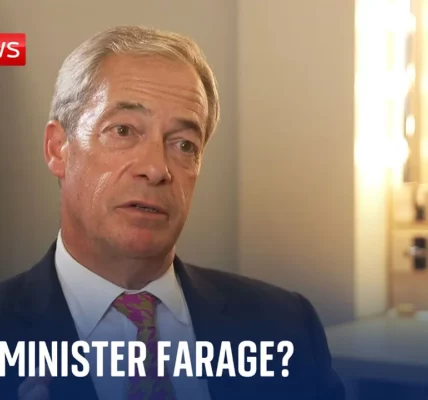Change in the Labor Party: A New Era for British Politics

In recent times, the British political landscape has undergone significant transformations, particularly with the Labor Party stepping away from its past as a party of protest to become a representative force for working people. This article explores the implications of these changes, the historical context, and the future that lies ahead for the party and the nation.
Introduction
The Labor Party has historically been perceived as a party of protest, often opposing conservative policies without a clear vision for governance. However, recent developments indicate a pivotal shift toward a more inclusive and proactive approach aimed at representing the interests of working people across the United Kingdom. This article aims to delve into the factors that have led to this transformation, the consequences of previous conservative governance, and the promising future that the Labor Party now envisions.
The Conservative Party’s Historical Context
The Conservative Party has faced significant scrutiny for its governance style, which many critics argue has led to widespread incompetence and dishonesty. The heavy defeat the Conservatives faced in the recent elections marks a critical juncture in British politics. Below are some key points regarding this situation:
- Historical Defeats: The Conservatives have experienced the heaviest defeat in their party’s history, signaling a shift in public sentiment.
- Public Disillusionment: Voters have expressed frustration over policy failures and a perceived lack of accountability from conservative leaders.
- Impact on Working People: Many working-class individuals have felt the brunt of economic decline and division under conservative rule.
The Resurgence of the Labor Party
In stark contrast to the Conservatives, the Labor Party has emerged revitalized and ready to champion the causes of working people. This resurgence is not merely about regaining power but signifies a fundamental change in approach and philosophy.
Inclusivity and Representation
The current leadership of the Labor Party emphasizes inclusivity, ensuring that the voices of all demographics, especially women and marginalized groups, are heard and represented in Parliament.
Policy Reforms
With a commitment to policy changes that directly benefit working-class individuals, the Labor Party is focusing on:
- Affordable housing initiatives
- Healthcare reforms to strengthen the NHS
- Job creation programs aimed at reducing unemployment
The Role of Women in the Labor Party
A significant milestone for the Labor Party is the expansion of its Women’s Parliamentary Labor Party (WPLP), which is now larger than the entire Conservative Parliamentary Party. This achievement highlights the party’s commitment to gender equality and the empowerment of women in politics.
Empowerment Initiatives
The Labor Party has introduced several initiatives aimed at empowering women within its ranks and in broader society:
- Mentorship programs for aspiring female politicians.
- Gender-sensitive policies that address specific issues faced by women.
- Increased representation in leadership positions.
The Future of the Labor Party and British Politics
The changes within the Labor Party present a hopeful outlook for the future of British politics. As the party solidifies its role as a representative body for working people, it is poised to create a more equitable society. Some potential future developments include:
- Strengthening community ties and local governance.
- Innovative economic policies that focus on sustainability.
- Engagement with grassroots movements to foster democratic participation.
Conclusion
The transition of the Labor Party from a party of protest to a governing body focused on the needs of working people marks a significant milestone in British politics. The lessons learned from the Conservative Party’s governance have paved the way for a more inclusive and accountable political landscape. As the Labor Party moves forward, it holds the potential to effectuate meaningful change in the lives of citizens across the UK. For more insights on political transformations and their implications, visit our related articles on political change here.
“`




